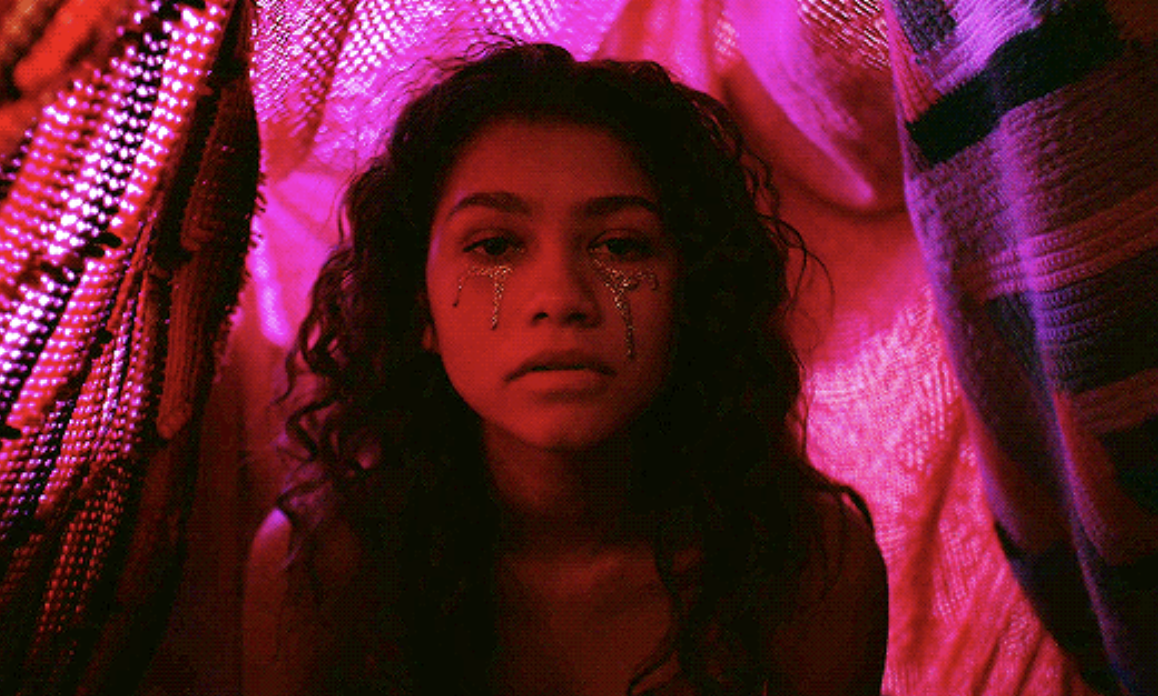“My Kid Is Doing Drugs Because of Euphoria”
By now, most of us have heard about the show Euphoria (if you haven’t, where have you been). Every Sunday many have been tuning in to see what the second season has to bring us.
For those who have not seen the show, it is about a group of high school students going through the struggle of becoming young adults - from best friends cheating, to pregnancies and drugs. It is narrated by Rue, a 16-year old addict, who is voiced by none other than Emmy award-winner and Marvel actress Zendaya.
Now the show is known for its absolutely stunning visuals, from make-up to lighting to scene settings. You may also know it from well-known music written by Labrinth. However, some people, especially very 'concerned' mothers have said that the show glamorizes drug abuse and even encourages its audience to participate in drunk taking.
Now let’s talk about every reason why that show does the opposite.
WARNING: Spoilers ahead
Episode 5 has been the dreaded episode for viewers in both seasons and is also the reason behind Zendaya’s Emmy award. In the first season, we watch as Rue tries to break down Fezco’s door after the whole, extremely dangerous, mouse situation. We can see how broken she is and how she says anything to get her next high, including blaming Fezco for her addiction. This is with the hope that her hurtful words will get to him enough to let her in.
Now, in the second season, there are even more painful scenes like this to watch. We see Rue becoming aggressive, having panic attacks, and attacking her mum and sister in a fit of panic and rage after her pills are flushed away. She constantly switches from screaming and attacking her family and friends to breaking down and sobbing - clearly not being in charge of her own emotions.
She then proceeds to break up with Jules and break her, and probably most viewers, hearts.
After all of that, we see Rue’s comedowns and withdrawal, where we are shown just how much pain both she and her family are in. It does not glorify the use of drugs, rather it shows the reality of how drug abuse creates a wave effect of pain that is inflicted on the addicted and all of those around them.
Addiction in young people is a really big issue, both in the US and around the world. Euphoria was not created to “glamourize” drugs or make the addiction look fun. It shows the true reality. The fact that there are fun effects to drugs, because no one would take them if there weren’t, but also how exactly the negatives outway any positives we may see in drugs.
It’s easy for parents to blame addiction on show, peer pressure, and society as a whole, however, many teens become addicted to drugs due to their environment at home. According to the National Institute on Drug Abuse, many teens start taking drugs to combat feelings of depression, anxiety, and general stress.
The number of teen suicides has risen by around 60% since 2007, with many of those suicides being drug-related. It is true that with social media sites like Snapchat, drugs are a lot easier to find than ever, with them being more accessible to young people. Many of us may know dealers personally or have known a dealer through a friend.
Opioid deaths have also become a national emergency in the US, with the numbers increasing by over 500% since 1999, and many youths have abused prescription drugs, due to how easily accessible they have become. - https://drugabusestatistics.org/teen-drug-use/
However, we still cannot blame shows (and video games) for the rise of suicides and drug abuse. Programs that portray drug abuse have been around for years, with Skins also being a very popular UK series in the early 2010s. Despite showing how often drugs are used in the UK, it did not cause a direct increase in drug users, because the reality is, teens who take drugs do them regardless of what they see on tv.
People don’t watch shows about athletes and suddenly take up running, or watch movies with people drinking and decide to drink because of it. We can’t put all blame on what we see on TV. It's simply just an easy way of blaming outside sources instead of ourselves.
